Academic co-partners of The Innovation
Institute of Microbiology, Chinese Academy of Sciences
The Institute of Microbiology of the Chinese Academy of Sciences (IMCAS) is the largest microbiological research institution in China. It was founded in 1958. over 60 years of development, it has become the nation's largest comprehensive research institution of microbiological science. At present, the scientific research system of IMCAS is comprised of five laboratories: State Key Laboratory of Microbial Resources, State Key Laboratory of Plant Genomics (jointly set up by IMCAS and the Institute of Genetics and Developmental Biology, CAS), State Key Laboratory of Mycology, CAS Key Laboratory of Pathogenic Microbiology and Immunology, and CAS Key Laboratory of Microbial Physiological and Metabolic Engineering. IMCAS owns the largest fungal herbarium in Asia with nearly 500,000 specimens and the largest microbiological culture collection in China with more than 41,000 strains. In addition, it possesses a microbiological information center, a core facility, a Biosafety Level-3 laboratory and other supporting platforms. It also attaches great importance to cooperation with international scientific community and industries. Since 2008, IMCAS implemented 50 international cooperative projects and 40 talent recruitment and international exchange projects. In 2010, IMCAS was elected to be the host institute of the World Data Center for Microorganisms. In 2012, IMCAS cooperated with Royal Holloway, University of London and launched Fungal Names, an international fungal names registration website and a Chinese fungal species database. In March 2013, the CAS-TWAS Biotechnology Center of Excellence was established at IMCAS. Through over six decades of unflagging efforts, IMCAS has developed into a comprehensive microbiological research institution with rich heritage, great strength and international reputation.
Learn more: https://english.im.cas.cn/
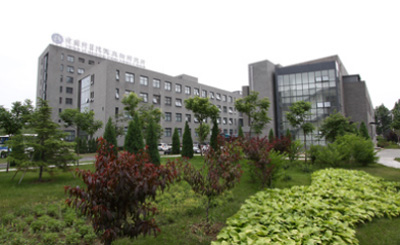
Shanghai Institute of Applied Physics, Chinese Academy of Sciences
Established in 1959 and formerly known as Shanghai Institute of Nuclear Research before June 2003, Shanghai Institute of Applied Physics (SINAP), Chinese Academy of Sciences is a national institute of comprehensive nuclear science and technology. The main research fields of SINAP include advanced energy science and technology, represented by Thorium molten salt reactor nuclear energy system (TMSR), efficient energy storage and conversion, as well as the application of nuclear technology in the environmental, health and materials fields. Now, SINAP is responsible for the Thorium-based Molten-Salt Reactor(TMSR) nuclear energy system, one of the Chinese Academy of Sciences' Strategic Priority Research Programs. The goal is to develop the fourth-generation fission reactor nuclear energy system and thorium-uranium cycle technology, with industrial applications within 20 years. SINAP has always attached great importance to academic exchanges and cooperation with international communities of science and technology. It has established collaborations with a number of leading research institutions, including UK, Switzerland, Germany, Italy, Japan, South Korea, Singapore, Australia, USA, Canada, Russia & Romania.
Learn more: http://english.sinap.cas.cn/

Xi'an Institute of Optics and Precision Mechanics, Chinese Academy of Sciences
Xi'an Institute of Optics and Precision Mechanics (XIOPM), Chinese Academy of Sciences was founded in 1962 and is one of the largest research institutes of Chinese Academy of Sciences (CAS) in the Northwest. After more than 60 years of innovation, it has developed into a comprehensive research institute focusing on strategic high-tech innovation and applied basic research. The main research fields and directions of XIOPM are as follows: transient optics and photonics, high-resolution visible light spatial information acquisition and optical remote sensing technology, interference spectrum imaging, high-speed optoelectronic information acquisition and processing technology, advanced optical instruments and underwater optical technology. The institute has 32 research units with complete technical service system, including one national key laboratory, three key laboratories of CAS, two Shaanxi Engineering and Technology Centers, one Shaanxi Provincial Key Laboratory and Xi’an Key Laboratory. In recent years, Xi'an Institute of Optics and Precision Mechanics adheres to facing the forefront of the world's S&T, facing the country's major needs, facing the main field of the national economy, driving development with innovation, and boldly innovating the system of S&T. It adheres to demolish “enclosure”, run opening-up institute for taking the lead in proposing and shaping the "hard technology" double-creative brand.
Learn more: https://english.opt.cas.cn/
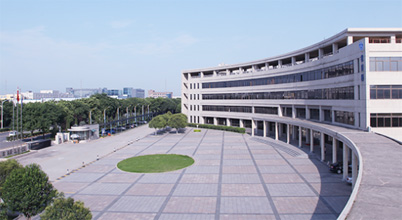
Academic co-partners of The Innovation Life
The Innovation Life is academically supported by Yunnan University and State Key Laboratory of Environmental & Biological Analysis at Hong Kong Baptist University.
Yunnan University
Founded in 1922, Yunnan University was selected as a national "Double First Class" university in 2022. It is one of the renowned comprehensive universities in China with international influence. Yunnan University has 28 colleges, 10 research institutions, 1 affiliated hospital and a graduate school. Excluding the affiliated hospital, the university currently has over 3,000 faculty and staff members, among which more than 2,700 have professional and technical positions, nearly 1,300 have senior professional titles, and nearly 1,500 hold doctoral degrees. In addition, the university has 12 academicians, nearly 80 national-level talents, 8 chief scientists of the National Key Basic Research and Development Program, 16 scientists in the National "Hundred and Ten Thousand Talents Project", and 16 in the "Hundred Talents Program" of the Chinese Academy of Sciences. The university has undertaken 6 national 973 and 863 projects, 2 major national water projects, 6 national key research and development plans, 2 national science and technology support programs, etc. The university has won multiple awards, including the National Natural Science First Prize, National Natural Science Second Prize, National Science and Technology Progress Second Prize, Whittaker Outstanding Ecologist Award, and International Young Paleontologist "Hodgson Award". More than 20 papers of the university have been published in top international journals such as Nature and Science.
Learn more: https://www.ynu.edu.cn/
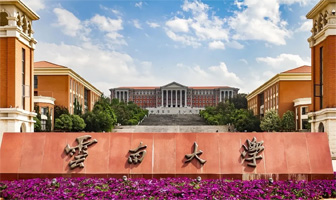
State Key Laboratory of Environmental and Biological Analysis (SKLEBA) at Hong Kong Baptist University
With the recommendation of the Innovation and Technology Commission of the HKSAR Government, the establishment of State Key Laboratory of Environmental and Biological Analysis (SKLEBA) at Hong Kong Baptist University was approved by the Ministry of Science and Technology of China (MOST) in July, 2013 partnered with State Key Laboratory of Environmental Chemistry and Eco-toxicology in Research Center for Eco-Environmental Sciences, Chinese Academy of Sciences. (RCEES, CAS). SKLEBA is an interdisciplinary research platform focusing on three correlated fields, i.e. environmental science, biological science and material science. The laboratory promotes fundamental research and develops novel analytical methods for life science, with the effect of persistent organic pollutants (POPs) on environment, food safety and public health as its prior target research objectives.
Learn more: http://skleba.hkbu.edu.hk/en/background/
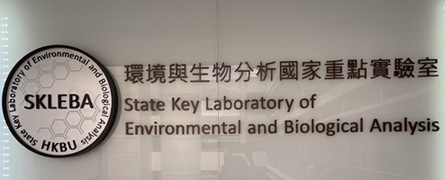
Academic co-partners of The Innovation Geoscience
The Innovation Geoscience is academically supported by International Research Center of Big Data for Sustainable Development Goals, Institute of Deep-sea Science and Engineering, CAS, and The University of Hong Kong.
International Research Center of Big Data for Sustainable Development Goals
The International Research Center of Big Data for Sustainable Development Goals (CBAS) aims to harness big data to serve the 2030 Agenda for Sustainable Development, featuring multidisciplinary research related to Earth system science, social and economic sciences, as well as sustainability science. It is devoted to monitoring and evaluating indicators of the Sustainable Development Goals (SDGs) in the areas where big data plays a key role, including environmental commons, urban and peri-urban development, food security, and energy decarbonization. The key missions of CBAS include developing SDG data infrastructure and information products, developing and launching a series of SDG satellites, providing new knowledge for SDG monitoring and evaluation, establishing a think tank for science, technology, and innovation to promote SDGs, and providing capacity development for SDGs in developing countries.
Learn more: http://www.cbas.ac.cn/en/
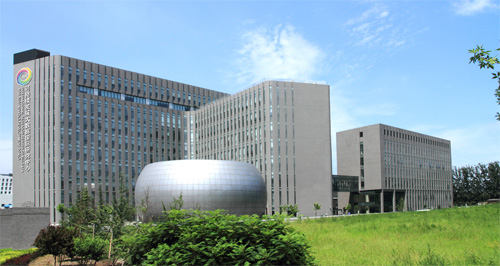
Institute of Deep-sea Science and Engineering, Chinese Academy of Sciences
The Institute of Deep-Sea Science and Engineering, Chinese Academy of Sciences (IDSSE, CAS), a research institution affiliated to the Chinese Academy of Sciences, was formally founded in May 2016. The goals of IDSSE, CAS include building a marine science and technology innovation base that integrates deep-sea scientific research, R&D of engineering technologies, achievement transfer and transformation, scientific and technological services, and talent training; establishing China's core R&D base for deep-sea science and engineering technologies, deep-sea technology test base, marine strategic think tank, and science education base; becoming the first-class R&D institution, education and public service center with significant impact in the field of international deep-sea science and engineering; leading R&D of deep-sea science and engineering technologies in China. As of January 31, 2024, the institute has 260 employees. Among the 215 faculty members who hold the professional and technical positions, 37 hold senior positions and 55 hold deputy senior positions. There are 89 employees with doctoral degrees and 118 with master's degrees.
Learn more: http://www.idsse.cas.cn/
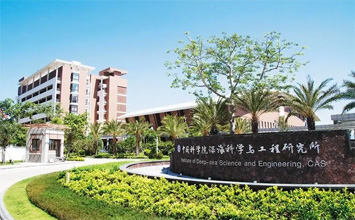
The University of Hong Kong
The University of Hong Kong (HKU) is a comprehensive research-intensive institution comprising ten faculties. HKU's high-calibre staff and students—recruited from around the region and the world—engage in innovative research with local, regional and global significance across the University's faculties and research centres and institutes. HKU consistently ranks high among the world’s top universities. It has the most Academicians of the Chinese Academy of Sciences/Engineering of any local institution, and many of its scholars are amongst the top 1% in their field according to ISI’s Essential Science Indicators. Researchers at HKU repeatedly secure the lion’s share of competitive government research funding, including through the General Research Fund, Areas of Excellence Scheme and Theme-based Research Scheme. In research output, HKU holds a leading position in Hong Kong, both in the amount of output and the number of citations. The University has a wide range of international collaborations, including through collaborative research projects, visiting professorships, and joint doctorate programmes with world-class institutions, and actively participates in international networks.
Learn more: https://www.hku.hk/
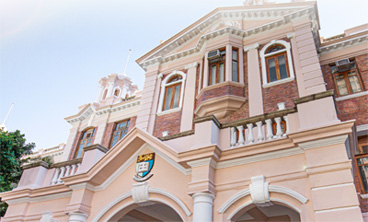
Academic co-partners of The Innovation Materials
The Innovation Materials is academically supported by Ningbo Institute of Materials Technology and Engineering, CAS, and Shanghai Institute of Ceramics, CAS.
Ningbo Institute of Materials Technology and Engineering, CAS
Ningbo Institute of Materials Technology and Engineering (NIMTE), as a research institute affiliated to the Chinese Academy of Sciences (CAS), was officially founded in 2004. As the first state-owned research institute in Zhejiang Province, NIMTE has dedicated itself to strengthening cooperation with industries and research organizations in fields of new materials, advanced manufacturing, new energy and biomedical engineering, and to integrating research and technology with high-tech industrialization. Today NIMTE has more than 1,100 staff, including over 400 overseas high-level talents, 4 Academicians of CAS and the Chinese Academy of Engineering (CAE), 7 winners of the National Science Fund for Distinguished Young Scholars. The institute has 10 master/doctor degree programs, 3 postdoctoral research stations and serves approximately 2,250 students. Having built 43 scientific research platforms at the national, CAS, as well as the provincial and ministerial level, the institute is responsible for over 6,800 projects. With over 3,600 patents issued and over 10,400 papers published, NIMTE has actively implemented world-leading innovation. NIMTE values international partnership and considers internationalization as one of its key focal points and has established long-term exchange programs and cooperative relationships with over 200 universities and research institutes from over 30 countries and regions.
Learn more: http://english.nimte.cas.cn/
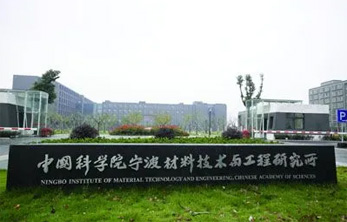
Shanghai Institute of Ceramics, CAS
Founded in 1928 as part of the Engineering Institute of National Central Academy, the institute was separated and renamed as the Shanghai Institute of Ceramics in the year of 1984. The Shanghai Institute of Ceramics, CAS (SICCAS) stands as a beacon of excellence in both pioneering basic research and innovative applied research, focusing on a diverse array of research areas. These include high performance ceramics and superfine microstructures, structural ceramics and composites, inorganic functional materials and devices, energy materials, inorganic coatings, artificial crystals, biomaterials and tissue engineering, environmentally friendly materials, the analysis and characterization of inorganic materials, and the technological study of industrial ceramics and ancient Chinese ceramics. With a legacy marked by over nine decades of impactful contributions, SICCAS has garnered international acclaim, receiving 55 national-level awards, hundreds of CAS, ministerial, and provincial awards, and more than 400 scientific and technical prizes. In addition to hold approximately 1,672 valid patents, we rank among the top 10 institutes in China for the number of citations in SCI-indexed papers. Our Institute boasts a talented and diverse staff of over 700 individuals, including one CAS academician, three CAE academicians, and approximately 634 scientific researchers and technicians. SICCAS prioritizes the development of the next generation of materials scientists, engineers, and entrepreneurs, and has been authorized to grant Ph.D. and Master's degrees, along with hosting a circulating post-doctorate station. As of July 1, 2023, we proudly have 875 students, including 293 Ph.D. students and 582 Master students. ICCAS has cultivated extensive global partnerships with renowned universities, institutes, and enterprises and has hosted numerous international conferences on modern ceramic technology, as a global leader in the field.
Learn more: https://english.sic.cas.cn/
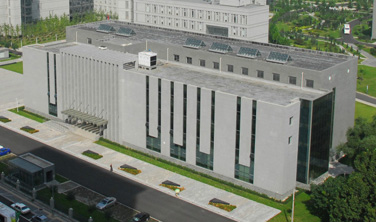
Academic co-partners of The Innovation Medicine
The Innovation Medicine is academically supported by the Hong Kong Polytechnic University and the First Affiliated Hospital of Anhui Medical University.
The Hong Kong Polytechnic University
The University provides the best holistic education to nurture socially responsible “leaders of tomorrow” who possess a strong sense of national identity and a global perspective, and pursues impactful innovation and interdisciplinary research to address the world’s most pressing challenges. A robust culture of knowledge transfer and entrepreneurship is a cornerstone of the University, ensuring PolyU’s technologies are transformed into practical real-world applications. The University's unwavering commitment to excellence has earned it international recognition, with PolyU consistently ranking among the top 100 universities worldwide. Based on this solid foundation, the University will continue to make positive contributions in collaboration with its strategic partners for the betterment of Hong Kong, the Nation, and the world.
Learn more: https://www.polyu.edu.hk/about-polyu/#polyu-at-a-glance

The First Affiliated Hospital of Anhui Medical University
Formerly known as the Southeast Affiliated Hospital of Shanghai Southeast Medical College founded in 1926, the First Affiliated Hospital of Anhui Medical University was listed in the first batch of national 3A-grade hospital by the Ministry of Health in 1993. Currently, the hospital offers 6,038 inpatient beds. The annual number of outpatients at the hospital exceeds 6.05 million, and that of inpatients is 220,000. The hospital ranks among the top in comprehensive strength in Anhui province. For 13 consecutive years, the hospital has been nominated for the Top 100 Best Hospitals in China, ranking 38th in scientific research and academic research nationwide. The hospital has more than 200 doctoral supervisors, and over 1,200 experts with senior professional titles. Among the outstanding talents, there are more than 140 experts who enjoy special allowance awarded by the State Council and Anhui provincial government. In recent five years, the hospital has conducted more than 250 national-level scientific research projects and won over 50 awards above provincial or ministerial level. Over 600 papers of the hospital are published in SCI-indexed journals annually, and in the past two years, 12 have been published in top international journals such as Nature, Science, Cell, Lancet Haematology, Nature Communications, Journal of Hepatology and Hepatology.
Learn more: https://www.ayfy.com/yyjs.htm.

Academic co-partner of The Innovation Energy
The Innovation Energy is academically supported by National Center for Nanoscience and Technology.
National Center for Nanoscience and Technology
National Center for Nanoscience and Technology, China (NCNST), established in December 2003 and co-founded by the Chinese Academy of Sciences (CAS) and the Ministry of Education, is dedicated to fundamental and applied researches in the field of nanoscience and technology, especially those with important potential applications. The NCNST currently has three CAS Key Laboratories and has co-founded 19 collaborative laboratories with Tsinghua University, Peking University, and the Chinese Academy of Sciences. The NCNST has doctoral and postdoctoral education programs in condensed matter physics, physical chemistry, materials science, nanoscience and technology. In 2014 the International Evaluation Committee highly applauded its significant achievements and outstanding contributions in nanoscience, and remarked that NCNST had risen to a position of “by far the best in China”. In 2018 the Nature Index showed that NCNST had been one of the “Top 5 Institutes of CAS”. According to the data of Clarivate Analytics in 2018, five researchers in NCNST, who published a total of 216 highly cited papers, were included in the "Highly-Cited Researchers” around the world in recent 10 years.
Learn more: http://english.nanoctr.cas.cn/
